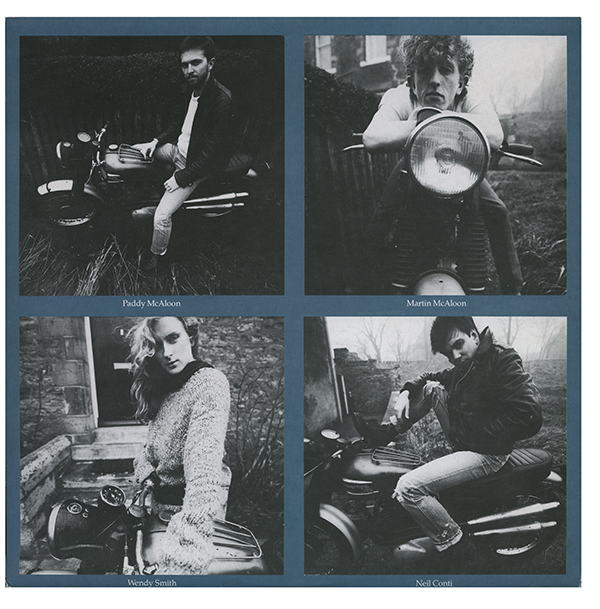Prefab Sprout Steve McQueen Page 2
Perhaps understandably, the song stalled at No 25, but it has gone on to be covered by artists as diverse as The Zombies, Lisa Stansfield and Snow Patrol, appearing too in the mega-million-selling computer game Grand Theft Auto.
Like the aforementioned 'Faron Young', 'Goodbye Lucille No 1' (later retitled 'Johnny Johnny' for release as a single), was also ten years old by the time the band recorded it.
'"Johnny Johnny" was written at the same time as The Police's "Walking On The Moon",' McAloon revealed to the NME. 'I was ill in bed and heard "Walking On The Moon" and it was really simple. I thought, "I've got to get simple…". And Johnny has to be the most clichéd rock 'n' roll word ever used. So I thought I'd fill the verses up with stuff you don't normally say to someone, like, "Are you still in love with Hayley Mills?''.'

The introspective ballad 'Appetite', McAloon explains, is 'a song about a girl who got pregnant, and has the idea of her calling the kid after her lust for life.' Of the same track, McAloon has also observed that producer Dolby is, 'marvellous at thinking of a rhythm track to complement the melody and interlock with the bass line. On "Appetite", the bass and drums are locked together in a beautiful pattern underneath, and that's mainly Thomas's work'.
Tribute Track
The album's closing song, 'When The Angels', is a tribute to one of McAloon's heroes, Marvin Gaye. 'In many ways, the song is me trying to work out why he died at that moment,' McAloon has said.
'His name isn't mentioned in the lyrics because, if you try and write while following the party line, whether it be about politics or music, then you don't give people enough room to manoeuvre.'
When the rehearsals, demos, recording and mixing sessions had finally ended, McAloon still needed to choose a name for the album and, 'I latched onto Steve McQueen, not because of his film career but – it sounds kooky this, hippyish – I liked the sound of his name.
'The LP cover is us on a motorbike, one of McQueen's trademarks, yet something you'd never associate with Prefab Sprout. So it's a pretty superficial link between the title and the album.'
Looking back at Steve McQueen from a distance of years, McAloon has observed, 'It's funny, when it came out a lot of the reviews centred on the first side. Yet as the years have passed, I see songs cited from side two – including "Horsin' Around" and "Desire As" – as being the best material. I was probably one of those people who preferred the first side too, it was easier'.
State Of Change
After its June 1985 release, despite virtually universal critical acclaim, Steve McQueen entered the UK albums chart where it peaked at a disappointing No 21, though it did manage to notch up a respectable 35 weeks on the listings. After a dispute with the deceased McQueen's estate, the album was released in the States as Two Wheels Good but it languished there in the lower reaches of the Billboard 200.
The passage of time, however, has achieved what those initial sales figures could not, and has established Steve McQueen as a bona fide classic. It has appeared in several lists of all-time greatest albums and in polls by The Times, Mojo and The Guardian. Steve McQueen was also selected for inclusion in the book 1001 Albums You Must Hear Before You Die.
















































